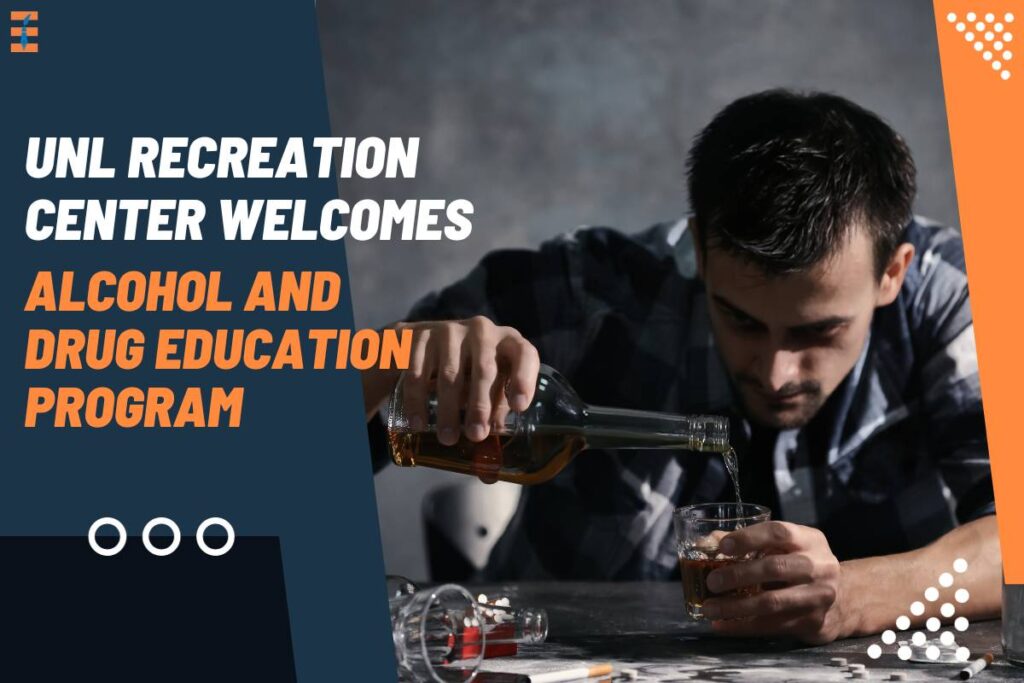The University of Nebraska-Lincoln’s Alcohol & Other Drug Education Program (AODE) has long been a familiar presence to students, with its messages promoting responsible substance use and safety found throughout campus. However, AODE’s mission goes beyond eye-catching posters and infographics, aiming to provide essential education and guidance to University of Nebraska-Lincoln students regarding alcohol and drug policies, as well as safe substance use practices.
Recently, AODE found a new home within the University of Nebraska-Lincoln’s Campus Recreation Center, where it has been operating for just three months. Previously, the program was managed by Big Red Resilience and Well-Being. According to Jon Gayer, the assistant director for Alcohol and drug Education, this transition occurred because AODE’s curriculum aligns with other wellness programs offered by the recreation center, such as massage therapy, nutrition, and injury prevention.
AODE’s primary role is to offer students clear information about state and federal alcohol and drug laws, including UNL’s own alcohol and drug policy. The program also seeks to minimize the potential harm associated with alcohol and drug use on campus.
While maintaining a drug-free campus is a priority for the University of Nebraska-Lincoln, AODE acknowledges that students may make choices involving alcohol and drugs. The program’s goal is not to promote substance use but to ensure that students are well-informed, emphasizing safe practices.
A Three-Step Approach to Engagement, Education, and Enforcement
According to Gayer, AODE employs a three-step approach, including Engagement, Education, and Enforcement. The program uses a variety of methods to educate students, such as posters, advertising boards, and tabling events like “Let the Good Times Roll.”
Collaborating with Nebraska Athletics and Student Affairs, AODE’s messaging has extended to tailgates, where posters promoting safe and responsible fun adorn trash cans and tables. Even prepackaged popcorn is distributed to convey messages about responsible behavior on game days. These events provide students with opportunities to engage in discussions on alcohol and drug-related topics.
However, it’s essential to note that these events do not condone prohibited activities. Enforcement is the aspect that sets boundaries and ensures compliance with university standards, along with implementing appropriate consequences when necessary.
UNL’s AODE has effectively disseminated its curriculum and messages through its membership in the Nebraska Collegiate Prevention Alliance (NECPA). The NECPA works collaboratively to develop strategies for reducing high-risk drinking and substance use among Nebraska college students.
Megan Hopkins, project director of the NECPA, emphasized the significance of informing individuals about safe substance use practices during their college years, a time characterized by significant life changes. College can present high-risk situations where students may turn to substance use.
Gayer shared Hopkins’ viewpoint, pointing out that students often arrive at college with misconceptions about substance use perpetuated by media and movies. AODE’s mission includes debunking these stereotypes and providing accurate portrayals of the UNL population. The program strives to establish a clear understanding of the University of Nebraska-Lincoln’s culture as a dry campus and help incoming students align with these expectations.
Foster Campus Culture and Promote Safe Practices
AODE has launched various initiatives to foster campus culture and promote safe practices. One notable initiative is a text messaging service that focuses on harm reduction. These messages serve as reminders for events organized by the University of Nebraska-Lincoln’s Campus NightLife, offering non-alcoholic and drug-free entertainment options. The messages also provide substance use safe practices, such as consuming a meal before drinking. AODE’s presence at UNL serves as a valuable resource, offering education and support to students as they navigate the challenges and choices associated with substance use while promoting a culture of responsibility and well-being on campus.
Also Read: University Students Are More Likely Than Non-Students To Experience Depression










